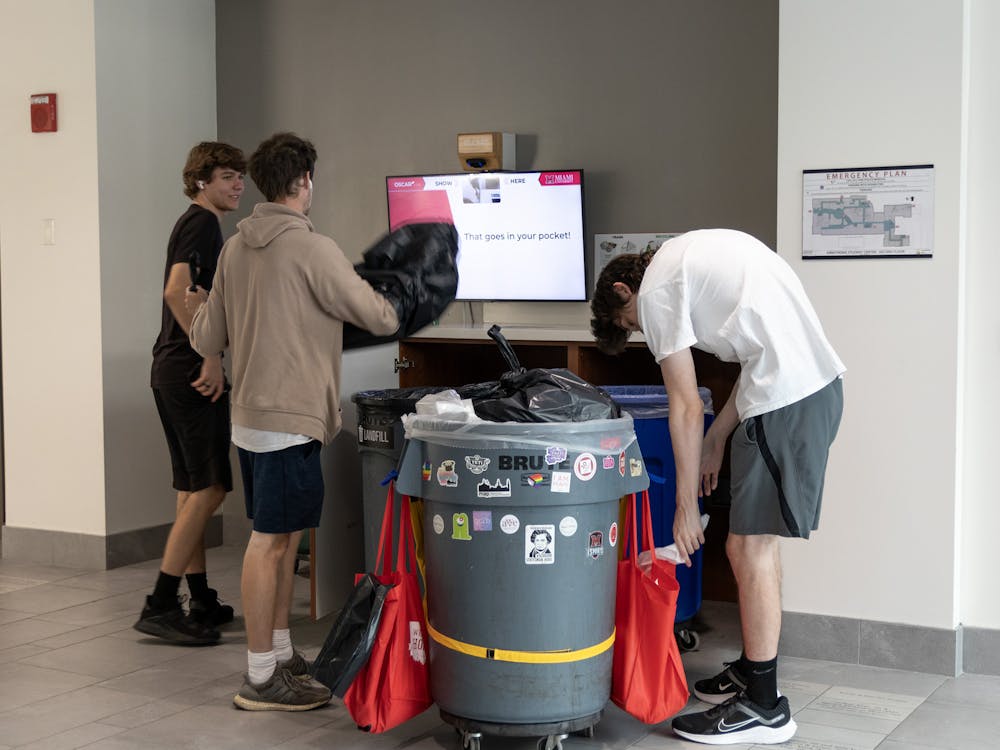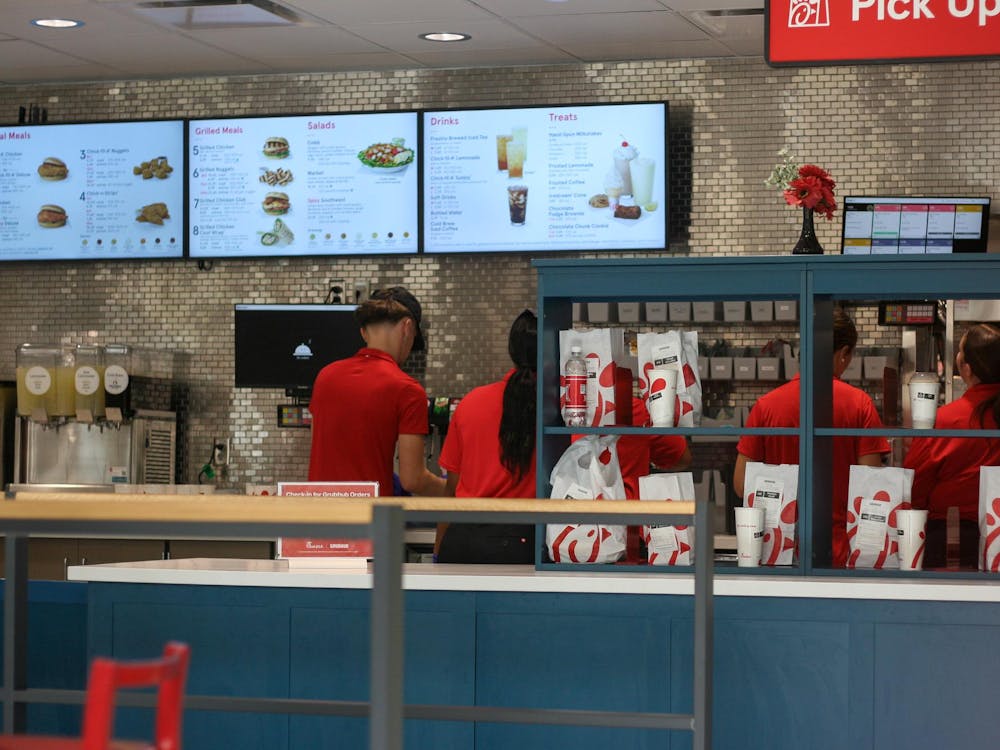If you’ve been in Armstrong Student Center recently, you’ve likely seen new TV screens by many of the trash cans throughout the building. Those TVs aren’t playing movies or advertisements though — they’re part of a new AI composting system named “Oscar.”
The Oscar Sort system is an AI composting system that directs students on where to dispose of their waste into three categories: recycle, compost and trash. However, how well these systems direct students to correctly dispose of their waste is a pivotal question.
After five systems have been put into Miami University’s student center over the summer, students have had ample time to test their usefulness for themselves.
Kathryn Sullivan, a senior triple majoring in creative writing, professional writing and anthropology, was hesitant about the system’s effectiveness.
“They’re really slow honestly … which makes me not want to take the time to use them,” Sullivan said.
Sullivan said she would be able to process a sign a lot quicker than the AI screens since she wouldn’t have to adjust to the pace of the AI.
Despite the qualms of some students, the systems still see a significant amount of use. Andrew Talbot, a first-year business major who works at Red Zone said “at least half” of the students who come into Red Zone use the AI sorting system when throwing away their trash.
While the systems look high-tech and sleek, their effectiveness may depend on students’ preferences and their willingness to be patient with the systems.
In a previous Miami Student article, Olivia Herron, Miami’s director of sustainability, and Kourtney Spalding, associate director of events and operations for Armstrong, explained it will require a “test run” in Armstrong before these systems can be implemented elsewhere on campus.
“We’re looking at this whole first year as our test phase,” said Herron in an interview for the same article. “… It takes that long to get good data anyway and we are very open to student suggestions and feedback.”
While a year may seem a ways into the future, Herron expressed her hopes for increased compliance with the systems before winter break rolls around.
In an attempt to help people learn about the systems, students volunteered to monitor the different AI composter locations in Armstrong in one-hour shifts in the past two weeks. The purpose of this monitoring is to assess the extent to which students are using the AI and to give them instructions on how to dispose of their waste.
Enjoy what you're reading?
Signup for our newsletter
Sam Mezzapelle, a third-year biochemistry and environmental science double major, volunteered to monitor the Emporium AI composter location.
“It’s a good opportunity to hopefully help other people to be more mindful of where their stuff is going,” Mezzapelle said.
A tip that Mezzapelle gives to students who are confused about what is compostable is: “If it grows, it goes.”
Caden McCollum, a first-year physics and music performance double major, volunteered to monitor the Pulley AI composter location.
McCollum said many students who walk by the AI composter and the bins “just kind of throw stuff in there without actually using [the AI system].”
The Pulley AI composter location doesn’t have cabinets over the waste bins, which may be a reason why some students aren’t taking the time to use the AI system. In a recent interview with Herron, she said the Red Zone composting location has had better compliance due to having cabinets, and that by the end of the fall, each location will have cabinets to contain the waste bins.
Additionally, latches will be attached to the cabinets covering the compost bin which Herron views as “a further step of intentionality” on the student’s end to compost correctly.
While there are mixed views on the Oscar Sort systems’ effectiveness, more composting is better than none. A crucial part of the success of these composting systems, and their potential to be implemented across Miami’s campus, relies on student engagement and willingness to take the time to learn the system.
“It takes 30 seconds to do the right thing,” Herron said.




